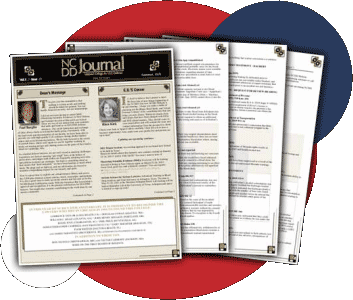- The ABA’s Concise Guide to Lawyer Specialty Certification
- Benefits to Become Board Certified - ABA Video
- Board Certified Members
- How to Become Board Certified in DUI Defense Law
- Apply for Certification
- Apply for Re-Certification Renewal
- Board Certified Senior Specialist
- Rules Governing Board Certification
- Preparing for the Exam
It May End, But Not Because of Technology
Posted on December 31, 2017 in Uncategorized

I'm a bit of a futurist. Well, maybe not as much as I used to be. Age has that affect upon you. It's hard to be truly excited about a future that you probably will not be around to see! I remember back at the turn of the century, I wrote a piece for one of the Gannett papers in which I contrasted, albeit favorably, predictions of the 21st century with what we actually achieved. Not that we hadn't accomplished a lot, but the century we were entering was nothing like those grainy "in the future" news reels they used to show in theaters.
Let me state at the outset, I like Justin McShane. He is an outstanding lawyer and has handled referrals that we have made with expertise and skill. As A DUI lawyer, he's tops, but as a futurist, well, I have a few issues.
In a blog that ran at this site, Mr. McShane contended that DUI practice is close to an inevitable conclusion as a result of technology. In sum and substance, he advanced the concept that fully automatic cars, such as the celebrated Google car, will eliminate the need for our craft. Certainly, if these autonomous cars take over, he is correct, but they will not and for several salient reasons.
Initially there is the cost. Automobiles are already at a point where a new vehicle is moving beyond the price point of the average American. Not only will these vehicles cost tens of thousands of dollars more than conventional vehicles, they will mandate the expenditure of billions of dollars in highway funds to fully adapt all of our streets and roads to these types of vehicles.
Then there are security issues. One need not follow the news on a daily basis to realize that terrorism, domestic and otherwise, truly threatens to destroy the world we know. An autonomous car would quickly become an unmanned land based guided missile. It would be virtually impossible to prevent their launching, packed with explosives, from locations far removed from the desired target.
Products liability puts the icing on the cake. At the present time, when an accident occurs, the injured party sues the driver of the offending vehicle. With autonomous cars, all lawsuits will be directed to the manufacturer of the vehicle involved. Having handled these cases in the past, I can state with virtual certainty that it is utterly inconceivable that GM, Ford, Honda and the like would willingly assume liability for each and every car accident in which their vehicles are involved. Indeed, it is precisely this issue which has kept car manufacturers from installing any one of the available alcohol detection systems.
Other issues will involve international compatibility. Will Ford still manufacture man directed vehicles to be sold in areas where the local roads absolutely will not tolerate fully automatic operation?
Additionally, even if we can successfully confront the forgoing issues, does anyone really believe that intoxicated individuals will be allowed to supervise the vehicle's operation? Transition to such vehicles will unquestionably lead to the use of sobriety checkpoints on a scale unheard of today.
Finally, there's the matter of customer preference. An autonomous car will utterly remove individuals from the driving process. While driving can, at times, be an unpleasant experience, the joy of driving is the bait that fills showrooms the world over..
In a larger sense however, Justin is correct. The day of the exclusive DUI practitioner will come to a close, but it will be for a distinctly different reason. Each year American law schools dump approximately 55,000 new lawyers into an already overcrowded fray. As a result, there are now way too many people who claim to do what we do. The collapse of the economy, coupled with a reduction in drug crime and the rise of the mega personal injury firms, has driven lawyers of all kinds to look to what they consider to be easy and safe, DUI. In their minds, merely requires knowledge of a couple statutes, a handful of cases and the ability to sell a plea at the end. Lack of talent forces these practitioners become experts at marketing, not defense. Further, these marketing practices have so overwhelmed the man or woman on the street that a DUI defendant has no idea whatsoever what they are getting into or what they are actually hiring. The downside of these practices is that it drives even the best DUI practitioners to either leave the practice all together or, in an effort to compete, risk stretching their financial resources to the point where all they can honestly concern themselves with is "how are our numbers."
When, 25 years ago, I first saw Back to the Future II, set in the year 2015, I half believed the predictions. Having seen the real deal, my optimism is gone. Nonetheless Justin is right, it's coming to a close.
Everyday we fight the good fight, but it is a losing battle.
What will you do?
Find an Attorney
Enter your city, state, or Zip code below to locate a qualified attorney who has demonstrated a commitment to defend those accused of DUI and related crimes.








